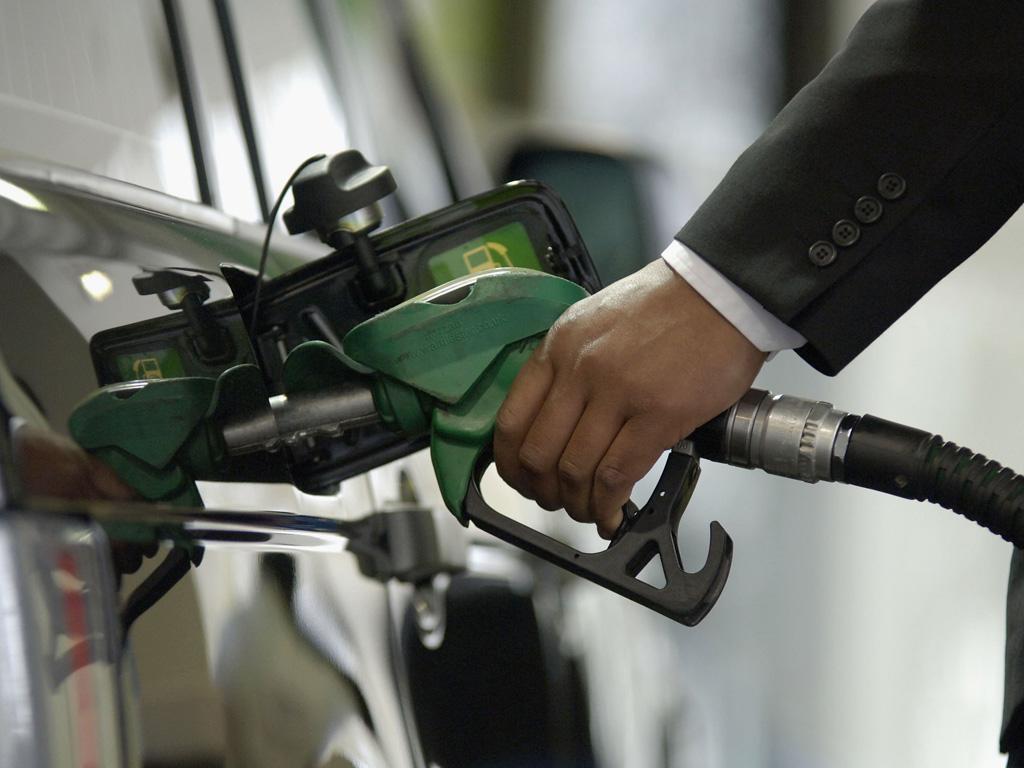
Your support helps us to tell the story
From reproductive rights to climate change to Big Tech, The Independent is on the ground when the story is developing. Whether it's investigating the financials of Elon Musk's pro-Trump PAC or producing our latest documentary, 'The A Word', which shines a light on the American women fighting for reproductive rights, we know how important it is to parse out the facts from the messaging.
At such a critical moment in US history, we need reporters on the ground. Your donation allows us to keep sending journalists to speak to both sides of the story.
The Independent is trusted by Americans across the entire political spectrum. And unlike many other quality news outlets, we choose not to lock Americans out of our reporting and analysis with paywalls. We believe quality journalism should be available to everyone, paid for by those who can afford it.
Your support makes all the difference.The price of petrol at the pumps has risen to a new high, the AA said today.
After a brief halt following weeks of increases, the average cost of petrol has gone up to 142.48p a litre.
Diesel, at 147.88p a litre on average, is just short of the record price which was set last week.
The AA said petrol had risen 10.23p a litre and diesel 7.32p a litre since pump prices started their climb at the start of the year, adding £21.72 to the monthly petrol cost of a two-car family.
In the past month alone, petrol has gone up 3.98p a litre and diesel 2.43p. A year ago, petrol cost 135.29p a litre and diesel 141.60p.
The most expensive petrol is to be found in Northern Ireland, at 143.9p a litre on average, while the cheapest is in Scotland (142.2p).
The dearest diesel is in Northern Ireland (148.2p a litre) while the least expensive is in Yorkshire and Humberside (147.3p).
AA president Edmund King said: "Panic-buying in March forced some cash-strapped families to spend far more on fuel than their budgets could bear.
"Filling up a 50-litre tank costs more than some families spend on food each week. This panic-buying masked a more persistent threat further up the fuel chain."
He went on: "Speculator-driven oil prices have crashed petrol demand, down 20% on pre-credit crunch levels in the UK and back to 2001 levels in January in the USA, resulting in refinery closures on both sides of the Atlantic.
"Now stock market speculators are gambling on a 'tight' wholesale gasoline market they helped to create. This is despite gasoline inventories in north west Europe being more than 8% bigger than this time last year and pump prices in the US falling."
Mr King continued: "With both the International Energy Agency and Opec (the oil-producing countries) saying last week that the global oil market is 'well-supplied', the pressure to maintain petrol wholesale prices at or just below record levels and kill even more consumer demand is absurd and incomprehensible.
"To help the 35 million UK drivers, the Government should address the current destructive tendencies in the oil and road fuel markets. Greater transparency would be a good start."
The AA said wholesale prices across northern Europe had failed to reflect a month of falling world oil prices.
It added that, since mid-March, the oil price had tumbled more than 4% yet, in north west Europe, wholesale petrol had remained above the 1,200 dollars-a-tonne benchmark which set record pump prices in July 2008 and May 2011 - the pound being significantly stronger on those previous occasions.
In July 2008, Brent crude oil peaked at $147 a barrel while, in May 2011 and this year, oil peaked at $125-126, which was a 14% reduction in the raw material cost.
PA
Join our commenting forum
Join thought-provoking conversations, follow other Independent readers and see their replies
Comments